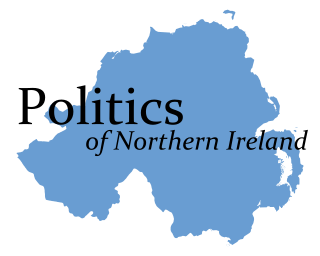
The 1951 United Kingdom general election was held twenty months after the 1950 general election, which the Labour Party had won with a slim majority of just five seats. The Labour government called a snap election for Thursday 25 October 1951 hoping to increase their parliamentary majority. However, despite winning the popular vote, Labour were defeated by the Conservative Party who had won the most seats. This election marked the beginning of the Labour Party's thirteen-year spell in opposition, and the return of Winston Churchill as Prime Minister. This was the final general election to be held with George VI as monarch, as he died the following year on 6 February and was succeeded by his daughter, Elizabeth II.

Elections in Northern Ireland are held on a regular basis to local councils, the Northern Ireland Assembly, the Parliament of the United Kingdom, and to the European Parliament.

A general election was held between Saturday, 8 July and Saturday, 22 July 1978 for members of the 5th Parliament of Malaysia. Voting took place in all 154 parliamentary constituencies of Malaysia, each electing one Member of Parliament to the Dewan Rakyat, the dominant house of Parliament. State elections also took place in 276 state constituencies in 10 states of Malaysia on the same day.

Folketing elections were held in Denmark on 11 April 1924. The result was a victory for the Social Democratic Party led by Thorvald Stauning, which won 55 of the 149 seats. Voter turnout was 78.6% in Denmark proper. In the Faroe Islands constituency there was only one candidate, who was returned unopposed.
The Newcastle upon Tyne North by-election, 1940 was a parliamentary by-election held on 7 June 1940 for the British House of Commons constituency of Newcastle upon Tyne North.

Federal elections were held in Australia on 17 November 1928. All 75 seats in the House of Representatives and 19 of the 36 seats in the Senate were up for election. The incumbent Nationalist–Country coalition, led by Prime Minister Stanley Bruce, defeated the opposition Labor Party led by James Scullin.
The Galloway by-election, 1925 was a by-election held for the British House of Commons constituency of Galloway in Scotland on 17 November 1925. The by-election was won by the Unionist Party candidate Sidney Streatfeild.
The Birmingham Edgbaston by-election, 1940 was a parliamentary by-election held for the British House of Commons constituency of Birmingham Edgbaston on 18 December 1940. The seat had become vacant when Neville Chamberlain, the constituency's Conservative Party Member of Parliament had died from stomach cancer on 9 November. Chamberlain had been Prime Minister until May 1940, and had held the Edgbaston seat since the 1929 general election.
The Wells by-election, 1939 was a parliamentary by-election held for the British House of Commons constituency of Wells in Somerset on 13 December 1939. The seat had become vacant when Anthony Muirhead, the constituency's Conservative Party Member of Parliament had died on 29 October, aged 48. He had held the seat since the 1929 general election. It was viewed as a significant turning point for politics in the local area.

South Fermanagh was a constituency of the Parliament of Northern Ireland.
This is a list of members of the Western Australian Legislative Assembly between the 1911 election and the 1914 election, together known as the Eighth Parliament. All members who sat as Liberals, apart from those returned at by-elections, were elected under the "Ministerial" designation at the 1911 election.
The Midlothian and Peebles Northern by-election, 1943 was a parliamentary by-election held in Scotland on 11 February 1943 to elect a new Member of Parliament (MP) for the House of Commons constituency of Midlothian and Peebles Northern.
The St Albans by-election of 1919 was a parliamentary by-election held in England in December 1919 for the House of Commons constituency of St Albans in Hertfordshire.
John Eric Loverseed was a pilot who flew with the Royal Air Force in 1930s, with Republican forces in the Spanish Civil War in 1937/38, and with the RAF again during the Battle of Britain. In 1943 he was elected as a wartime MP for the Common Wealth Party. He was later a co-founder of the pacifist Fellowship Party.
The 1942 Mid-Canterbury by-election was a by-election held on 27 January 1942 during the 26th New Zealand Parliament in the seat of Mid-Canterbury. The by-election resulted from the death of Arthur Grigg; his wife Mary Grigg was elected unopposed.

General elections were held in Singapore on 2 September 1972. The result was a victory for the People's Action Party, which won all 65 seats, the second of four consecutive elections in which they repeated the feat. Voter turnout was 93.5% in the 57 constituencies that were contested, with PAP candidates elected unopposed in the other eight, which represents 95,456 voters.
The Manchester South by-election was a Parliamentary by-election. It returned one Member of Parliament to the House of Commons of the Parliament of the United Kingdom, elected by the first past the post voting system.
The Liverpool Exchange by-election, 1922 was a by-election held in England for the House of Commons constituency of Liverpool Exchange on 13 March 1922.

Legislative elections were held in East Bengal between 8 and 12 March 1954, the first since Pakistan became an independent country in 1947. The opposition United Front led by the Awami League and Krishak Sramik Party won a landslide victory with 223 of the 309 seats. The Muslim League Chief Minister of East Pakistan Nurul Amin was defeated in his own constituency by Khaleque Nawaz Khan by over 7,000 votes, with all the Muslim League ministers losing their seats.
The Glamorgan County Council election, 1913 was the ninth contest for seats on this authority. It was preceded by the 1910 election and followed, due to the First World War, by the 1919 election.











